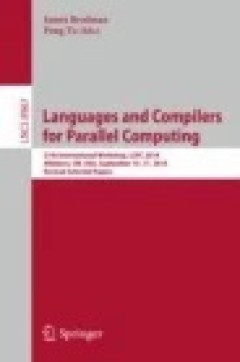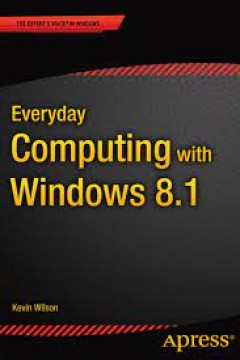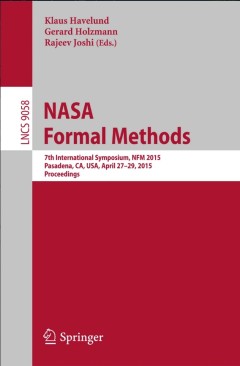Filter by

Languages and Compilers for Parallel Computing: 27th International Workshop, …
This book constitutes the thoroughly refereed post-conference proceedings of the 27th International Workshop on Languages and Compilers for Parallel Computing, LCPC 2014, held in Hillsboro, OR, USA, in September 2014. The 25 revised full papers were carefully reviewed and selected from 39 submissions. The papers are organized in topical sections on accelerator programming; algorithms for parall…
- Edition
- -
- ISBN/ISSN
- 978-3-319-17473-0
- Collation
- -
- Series Title
- -
- Call Number
- -

Everyday Computing with Windows 8.1
Get the most out of Windows 8.1 for your every day computing tasks, with no jargon. Clear, concise and to the point. This brief book, Everyday Computing With Windows 8.1 provides the essentials of using a desktop or laptop running Windows 8 or 8.1, providing a fast read for the beginner and the enthusiast. Windows 8 can give new users fits with options that are well hidden; this book uncovers t…
- Edition
- -
- ISBN/ISSN
- 978-1-4842-0805-2
- Collation
- 172 b/w illustrations
- Series Title
- -
- Call Number
- -

The Windows 10 Accessibility Handbook Supporting Windows Users with Special …
Learn everything you need to know about making Windows 10 easier to use, see, hear, touch, or read, whether you are using it yourself, setting it up for another person, teaching others about ease of use at work or in the home, or working with a variety of people with specific needs in the community.
- Edition
- -
- ISBN/ISSN
- 978-1-4842-1733-7
- Collation
- -
- Series Title
- -
- Call Number
- -

NASA Formal Methods:7th International Symposium, NFM 2015, Pasadena, CA, USA,…
This book constitutes the refereed proceedings of the 7th International Symposium on NASA Formal Methods, NFM 2015, held in Pasadena, CA, USA, in April 2015. The 24 revised regular papers presented together with 9 short papers were carefully reviewed and selected from 108 submissions. The topics include model checking, theorem proving; SAT and SMT solving; symbolic execution; static analysis…
- Edition
- 1
- ISBN/ISSN
- 978-3-319-17523-2
- Collation
- XIII, 458
- Series Title
- Lecture Notes in Computer Science
- Call Number
- -
 Computer Science, Information & General Works
Computer Science, Information & General Works  Philosophy & Psychology
Philosophy & Psychology  Religion
Religion  Social Sciences
Social Sciences  Language
Language  Pure Science
Pure Science  Applied Sciences
Applied Sciences  Art & Recreation
Art & Recreation  Literature
Literature  History & Geography
History & Geography